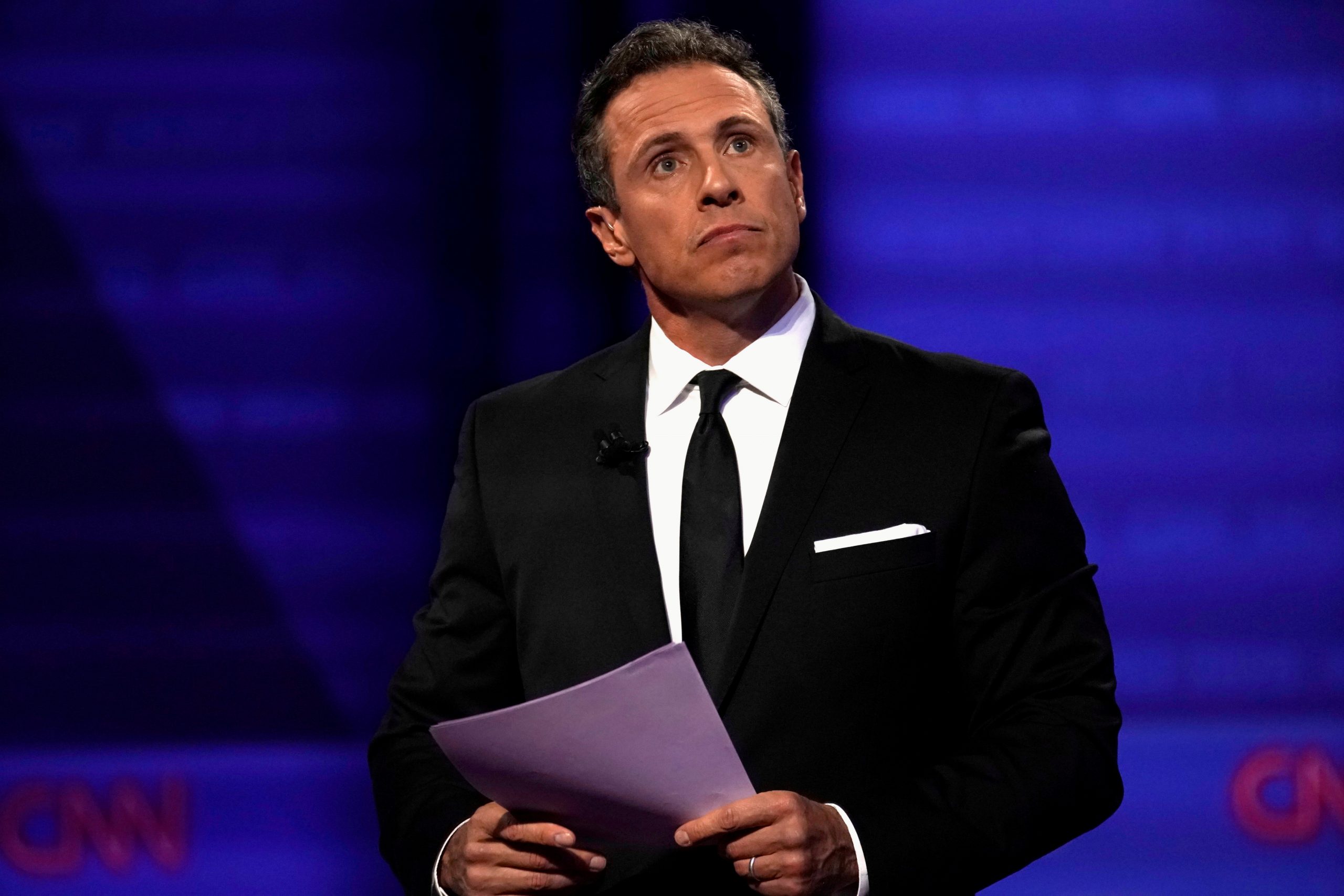
Willie R. Tubbs, FISM News
[elfsight_social_share_buttons id=”1″]
Three days after indefinitely suspending the host of its highest-rated show, CNN announced Saturday evening that it had fired Chris Cuomo for violating the network’s standards.
The termination stems for Cuomo failing to disclose the nature of his involvement in the defense strategy of his brother, former New York Gov. Andrew Cuomo, who faces criminal charges surrounding a litany of sexual misconduct claims.
At issue for CNN was that Chris had misrepresented the level to which he assisted in his brother’s defense and attempted to use his connections within media to uncover details about Andrew’s accusers.
“Chris Cuomo was suspended earlier this week pending further evaluation of new information that came to light about his involvement with his brother’s defense,” a statement from CNN, which was shared through the company’s public relations twitter account, reads. “We retained a respected law firm to conduct the review, and have terminated him, effective immediately.”
Cuomo had said earlier that he would not fight CNN’s process or findings. Saturday night, he tweeted a goodbye to his coworkers.
“This is not how I want my time at CNN to end, but I have already told you why and how I helped my brother,” Cuomo tweeted. “So let me now say as disappointing as this is, I could not be more proud of the team at Cuomo Prime Time and the work we did as CNN’s #1 show in the most competitive time slot. I owe them all and will miss that group of special people who did really important work.”
— Christopher C. Cuomo (@ChrisCuomo) December 4, 2021
It is unclear which law firm was retained, but CNN revealed that this firm had, in addition to affirming Cuomo’s violations of CNN policy, uncovered “additional information” that was concerning.
“Despite the termination, we will investigate as appropriate,” the statement reads.
Statement on Chris Cuomo’s termination from CNN. pic.twitter.com/yKPwYtMznD
— CNN Communications (@CNNPR) December 4, 2021
In moments of great crisis, or following revelations of major internal or ethical failings, it is common for news organizations to thoroughly investigate and disclose to the public the nature of their shortfalls.
Editors and publishers view these investigations as necessary for media outlets to regain the public’s trust and are typically good faith attempts at transparency.
In 2003, in the wake of reporter Jayson Blair fabricating and plagiarizing stories, the New York Times conducted a self-study and released a massive report, which is still free to access on the Times’ site 18 years later, in which it highlighted Blair’s misdeeds, as well as the failure of specific editors to detect Blair’s actions and the paper’s efforts to self-police.
More recently, political fact-checking site Snopes retracted 60 articles and released a statement of condemnation when it was revealed that the company’s founder had plagiarized articles using both his own byline and a pseudonym.
The Cuomo brothers’ fall from public favor was speedy. Less than two years ago, older brother Andrew was a popular figure on the American Left, and the recipient of an honorary Emmy that has since been revoked, while Chris hosted his CNN program and routinely had his brother on for what amounted to sketch comedy bits interspersed with COVID reporting.
Under virtually any journalism ethics code, reporters and pundits are not supposed to cover their family members. This irrefutable conflict of interest makes it impossible for consumers to expect impartial journalism. The well-founded worry has always been that journalists will, at minimum, go easy on their family members.
While non-journalists applauded, chuckled through, or endured the Cuomo brothers’ act, people within the field bristled. It was the rare time when both Fox News and the Huffington Post reached the same conclusion: whether or not this was entertaining, it was bad journalism. Both outlets cited experts who listed a bevy of reasons why CNN’s platforming of the brothers was a bad idea.
Within leftist circles, Andrew’s popularity rose. At one point, some within the Democratic Party hoped Andrew might make a late run at the presidency.
Then came reports of sexual misconduct, as well as the revelation that Andrew had underreported COVID deaths among New York’s elderly.
Where he’d been happy to have his brother on for softball interviews and poor man’s “Saturday Night Live” skits during the worst of COVID, when public sentiment turned Chris became notable for his silence.
Chris’ defense was that he was a brother first and a journalist second, which is the normal response. People rally to their family members in crisis.
According to CNN’s Brian Stelter, who in August went on late-night comedian Stephen Colbert’s show to address the Cuomo situation, network brass instructed Chris to not speak about his bother.
TONIGHT: @BrianStelter talks about the "wide range of opinions" inside CNN regarding anchor Chris Cuomo's coverage of his brother Andrew. #LSSC pic.twitter.com/27Z02RTNa3
— The Late Show (@colbertlateshow) August 11, 2021
Chris’ silence, whether voluntary or compelled, was ethical; his other actions, as evidenced by his termination, were not.
It is considered the height of ethical misdoing for a journalist to actively advise a politician in his defense or attempt to use connections with other journalists to uncover details about victims of alleged sexual misconduct.
However, even if CNN is applauded for bouncing the host of one of its popular prime time shows in the short term, the network is likely to face renewed calls for an explanation as to why it let the brothers use its airtime at all, especially when it was done under the guise of journalism during an international pandemic.
In August, Colbert grilled Stelter over why the network had instructed Chris to not speak about Andrew’s sexual misconduct investigation but had allowed the Cuomos to appear together almost nightly during the COVID Crisis.
At the time, Stelter said the matter was “really complicated.”
